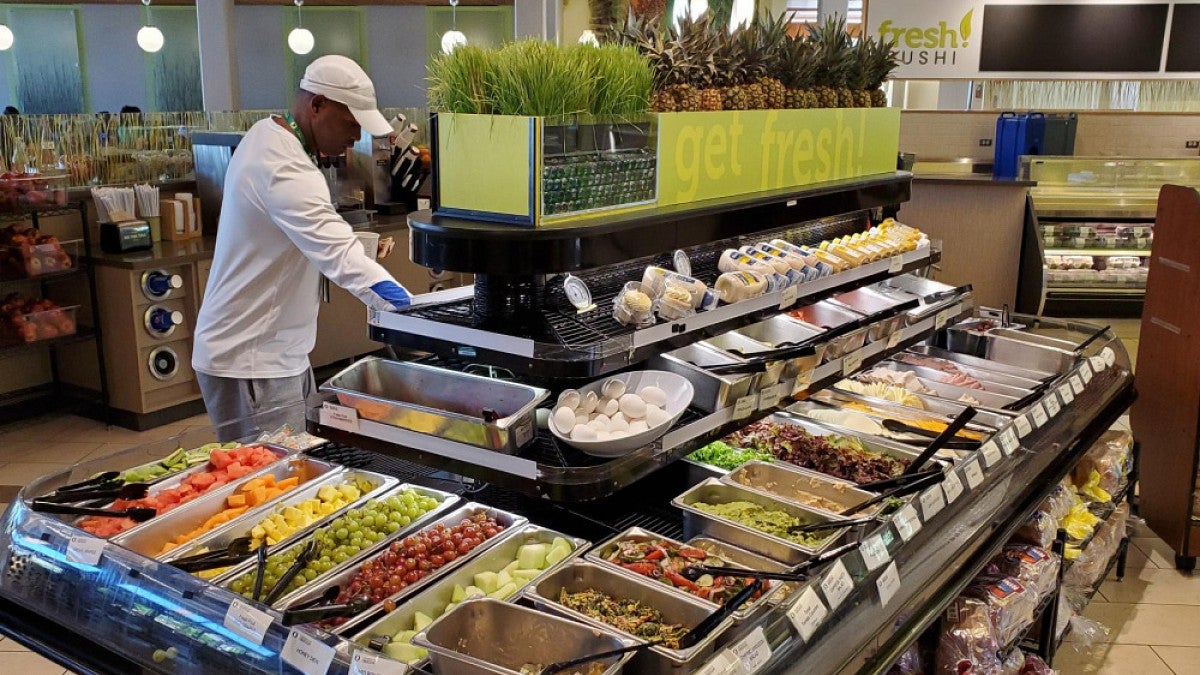Serving two weeks’ worth of meals to thousands of world-class athletes, coaches, officials and media members from across the globe, with dozens of languages spoken and a planet’s worth of culinary palates, might seem like an overwhelming task.
But for UO Dining, the mission is well within its wheelhouse.
Dining staff spent time over the last year developing its menus and plans to serve the World Athletics Championships Oregon22’s Athlete Village, which is spread across UO residences halls during the event. Those plans include a tailored high-protein, high-carbohydrate “athlete menu” to help the competitors refuel.
But many of the food choices and serving routines don’t actually differ that much from the day-in, day-out work the dining unit does to serve UO students, according to Tom Driscoll, associate director of university housing and director of dining services. The unit works hard to create a dynamic and diverse living and learning program for students.
“We are known for made-from-scratch, locally sourced fresh foods, with a strong variety of international cuisines,” Driscoll said. “That’s a trajectory we’ve been on for a while for our students, so serving an international crowd like this is right up our alley. This is what we do.”
Teams of athletes began arriving on campus during the week of July 11, sometimes late at night and very hungry due to travel delays. Dining services ran a 24-hour operation with pre-made and boxed meals for after-hours needs, before settling into its planned 6 a.m. to 10 p.m. schedule for the remainder of the event.
Around 200 staff members, including student employees, are working the event. Ten staff chefs, who helped develop the menus, are helping to ensure uniformity in food options in all the dining venues.
The UO identified 36 frontline staff fluent in foreign languages, including Spanish, French, Mandarin, Cantonese and Korean. Those team members wear special buttons that help visiting athletes identify those personnel who can assist them, speaking in their native language.
Feedback from the athletes has been overwhelmingly positive, said William Mullins, associate director of dining services. Athletes have also been pleasantly surprised that their housing and dining services are only a stone’s throw from Hayward Field, the competition’s hub.
“People are really astounded by the variety of food they are getting in the dining venues,” Mullins said. “I think we’re meeting or beating expectations for sure, so that’s been wonderful.”
Driscoll said that dining staff members are enjoying the buzz surrounding the event and getting to interact to top-level athletes from all over the world. Between 15 and 20 retired dining staff members even offered to come back just to be part of the event, he said.
“It suddenly turned into the United Nations here, almost overnight,” Driscoll said. “You don’t usually get a chance to hear so many different languages being spoken in a compact area, so it’s quite an incredible experience.”
—By Saul Hubbard, University Communications


